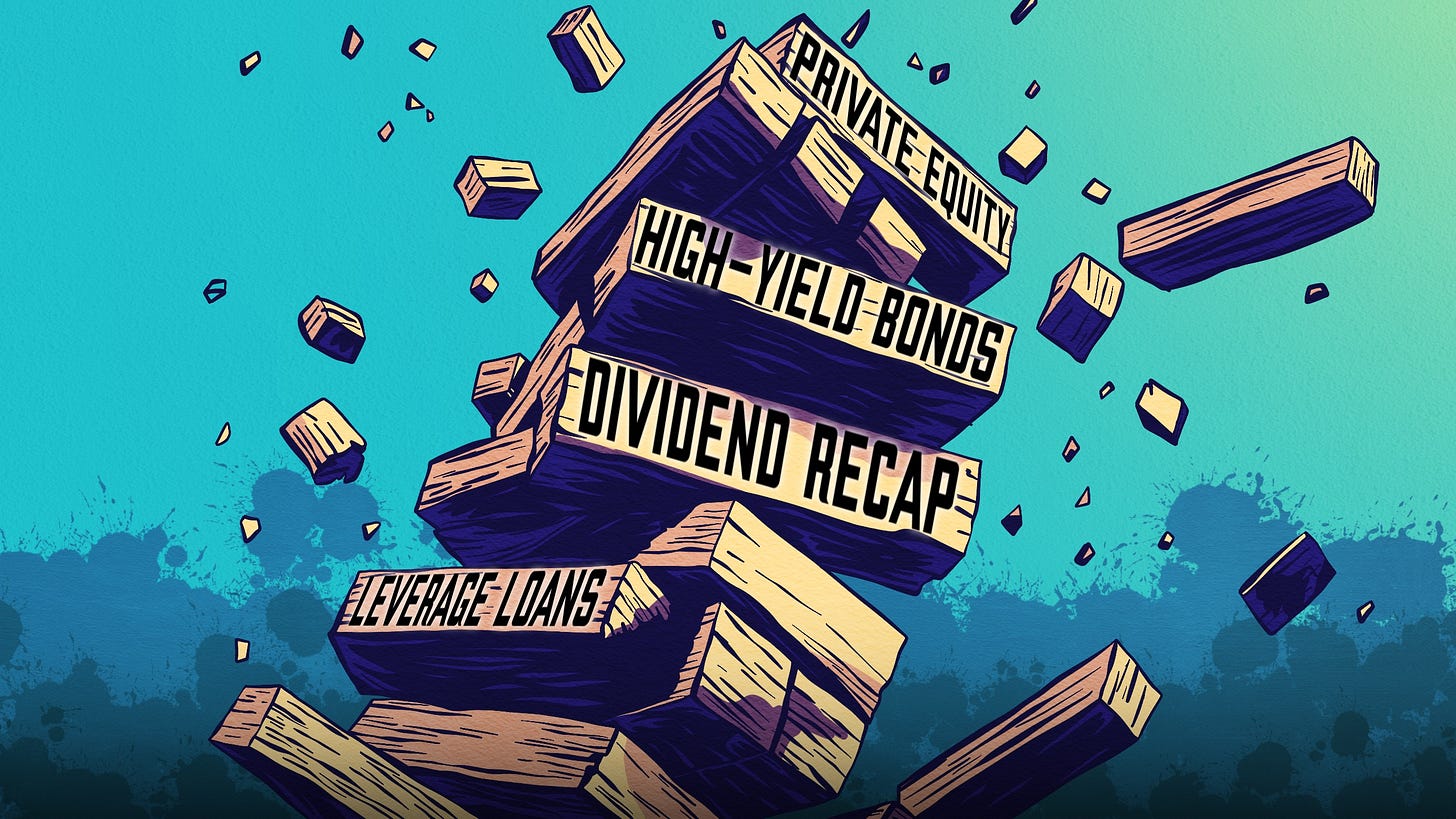A Reckoning is Coming For the Private Equity Economy
PE titans could lose millions, but working-class Americans might pay a bigger price
Two weeks ago, we wrote about private equity firms using a “dividend recap” strategy to pay themselves special dividends.
This occurs when companies owned by PE firms take out a huge loan and pay their investors with the loan proceeds, saddling the companies with high debt, but ensuring investors make their money no matter what.
We focused on Clarios International, noting how susceptible to calamity such highly leveraged companies are if something goes wrong.
President Trump’s war on globalization through tariffs has ramped up the odds of a global recession. Goldman Sachs has forecast a 45% chance of a U.S. recession — and this occurred after Trump announced a 90-day pause on reciprocal tariffs on all countries except China. Before that, Goldman’s recession forecast was at 65%.
In other words:
It’ll come as no surprise then that investors are running for the hills and trying to dump their shares in private equity. Unfortunately for investors, private equity managers have many tools to slow them down.
That’s bad news for the roughly 12 million Americans directly employed by private equity-backed companies, and the nearly 8 million who work for their suppliers.
Private equity firms rely on two main things to be successful:
Strong demand for private equity debt in the form of leveraged loans and high yield bonds
Robust demand for their companies when they need to exit
Last week, Goldman Sachs more than doubled their default predictions for leveraged loans from 3.5% to 8% and raised its estimate of high yield bond defaults from 3% to 5%. Responding to this bleak news, leveraged loan and high yield bond mutual funds as well as exchange-traded funds last week had their highest ever weekly “outflow” of investors, prompting Goldman to call it “Flowmegeddon.”
As Bloomberg News noted, there’s not much private equity firms can do in such a volatile market:
Even with a tariff reprieve, barriers to buying and selling assets remain. But buyout barons have their work cut out just operating the portfolio companies they’re sitting on. As investment realizations get pushed back yet again, the risk of business damage at their stuck-on-ice holdings increases.
Private equity companies have a well-deserved reputation for cutting expenses in the best of times. Those traditional cutbacks will pale in comparison to what private equity managers will do if they can’t sell their companies or refinance their debt in a weakening economy.
A potential recession is bad for everyone, but the risks are even higher for employees of private equity-backed companies.


You know what I hate about PE? They en-shitify everything. They take over companies that are producing high quality products, and they turn them into companies producing mediocre crap. And just when doom appears on the horizon, they sell out. It's the fucking worst and it makes it increasingly difficult to buy good stuff.
I hope the entire PE industry slinks back into the fetid swamp from which it came.
If interested, Private Equity Stakeholder Project does a great job following private equity’s effect on many sectors including healthcare.
www.pestakeholder.org